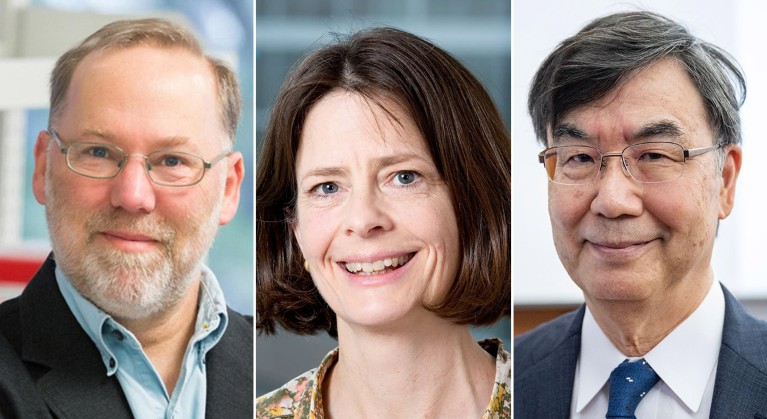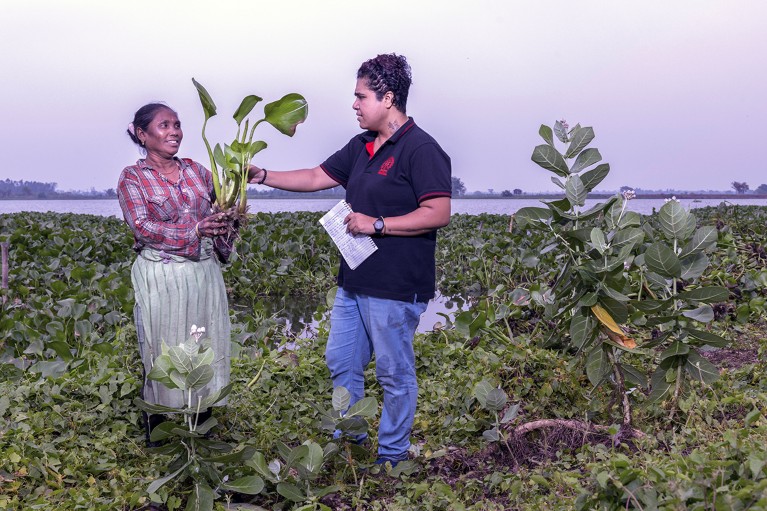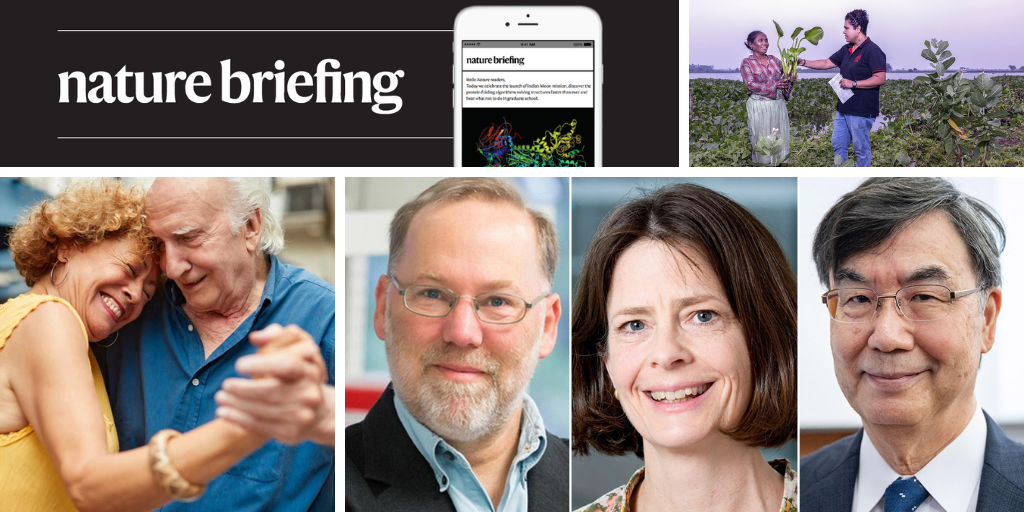You have full access to this article via your institution.
Hello Nature readers, would you like to get this Briefing in your inbox free every day? Sign up here.

Fred Ramsdell, Mary Brunkow and Shimon Sakaguchi identified regulatory T cells, which help to keep the immune system in check.Credit: F. Ramsdell, Institute for Systems Biology, Michaela Rihova/CTK Photo/Alamy
Molecular biologist Mary Brunkow, and immunologists Fred Ramsdell and Shimon Sakaguchi have won the Nobel Prize in Physiology or Medicine for discovering a class of immune cells — regulatory T cells — that help to prevent the body from attacking its own tissues. The winners’ discoveries help to explain “how we keep our immune system under control so we can fight all imaginable microbes and still avoid autoimmune disease”, says rheumatologist and Nobel committee member Marie Wahren-Herlenius.
Engaging in a creative pastime, such as ballroom dancing or playing a musical instrument, could slow brain ageing. Researchers studied brain clocks — models that measure the difference between a person’s chronological age and the age their brain appears to be — of dancers, musicians, artists and gamers from multiple countries. They found that the more skilled a person was at their chosen hobby, the slower their brain appeared to age, and that creativity had a protective effect on brain regions that are particularly vulnerable to ageing.
Reference: Nature Communications paper
For the first time, scientists have converted the blood type of a donor kidney and transplanted the organ into a person. The team used an enzyme to remove type-A antigens from the kidney. This made it a type-O organ, which is compatible with all blood types. The organ was transplanted into a 68-year-old brain-dead man and remained healthy for two days before showing signs of rejection. The procedure could improve access to donor organs and reduce waiting lists, says transplant clinician Natasha Rogers.
Reference: Nature Biomedical Engineering paper
Features & opinion
The breakneck pace of advances in artificial intelligence (AI) has some researchers convinced that the tool could soon compete for science’s greatest prize. Some are already trying: the Nobel Turing Challenge, for example, aims to develop an AI system that, without human intervention, can do the hypothesis generation, experimental planning and data analysis to make a worthy breakthrough. Critics warn that there are risks of introducing AI tools into the research pipeline, because they could introduce errors, reduce opportunities for up-and-coming scientists or drown out human ingenuity.
In Extraction, political scientist Thea Riofrancos exposes a dilemma at the heart of the green energy transition: lithium — which is crucial to produce electric batteries — cannot be extracted without harming ecosystems and Indigenous communities in low and middle income countries. The book “is not combative or ideological in nature”, writes environmental scientist Sophia Kalantzakos in her review, but “challenges readers to act”. With political will, a zero-emission world can balance climate goals and the protection of people and ecosystems, Riofrancos argues.
Where I work

Jenia Mukherjee is an environmental-humanities researcher at the Indian Institute of Technology Kharagpur, India.Credit: Sayan Hazra for Nature
Environmental-humanities researcher Jenia Mukherjee (right) studies the complex relationship between people, canals and wetlands in Kolkata, India. The wetlands — including the sewage-fed pond she stands in here — treat nearly 80% of the city’s waste water naturally, but face threats of urbanization as the area’s population continues to grow. In her research field, “there has long been a disconnect between natural science, engineering and social science”, she says. Researchers need to combine perspectives to gain a holistic picture of wetlands, “otherwise these ponds will continue to be degraded”. (Nature | 3 min read)
On Friday, Leif Penguinson was visiting a waterfall in Serra da Canastra National Park in Brazil. Did you find the penguin? When you’re ready, here’s the answer.
Thanks for reading,
Flora Graham, senior editor, Nature Briefing
With contributions by Jacob Smith
• Nature Briefing: Careers — insights, advice and award-winning journalism to help you optimize your working life
• Nature Briefing: Microbiology — the most abundant living entities on our planet — microorganisms — and the role they play in health, the environment and food systems
• Nature Briefing: Anthropocene — climate change, biodiversity, sustainability and geoengineering
• Nature Briefing: AI & Robotics — 100% written by humans, of course
• Nature Briefing: Cancer — a weekly newsletter written with cancer researchers in mind
• Nature Briefing: Translational Research — covers biotechnology, drug discovery and pharma


